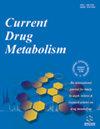The Impacts and Changes Related to the Cancer Drug Resistance Mechanism
IF 2.1
4区 医学
Q4 BIOCHEMISTRY & MOLECULAR BIOLOGY
引用次数: 0
Abstract
Background: Cancer drug resistance remains a difficult barrier to effective treatment, necessitating a thorough understanding of its multi-layered mechanism. Objective: This study aims to comprehensively explore the diverse mechanisms of cancer drug resistance, assess the evolution of resistance detection methods, and identify strategies for overcoming this challenge. The evolution of resistance detection methods and identification strategies for overcoming the challenge. Methods: A comprehensive literature review was conducted to analyze intrinsic and acquired drug resistance mechanisms, including altered drug efflux, reduced uptake, inactivation, target mutations, signaling pathway changes, apoptotic defects, and cellular plasticity. The evolution of mutation detection techniques, encompassing clinical predictions, experimental approaches, and computational methods, was investigated. Strategies to enhance drug efficacy, modify pharmacokinetics, optimizoptimizee binding modes, and explore alternate protein folding states were examined. Results: The study comprehensively overviews the intricate mechanisms contributing to cancer drug resistance. It outlines the progression of mutation detection methods and underscores the importance of interdisciplinary approaches. Strategies to overcome drug resistance challenges, such as modulating ATP-binding cassette transporters and developing multidrug resistance inhibitors, are discussed. The study underscores the critical need for continued research to enhance cancer treatment efficacy. Conclusion: This study provides valuable insights into the complexity of cancer drug resistance mechanisms, highlights evolving detection methods, and offers potential strategies to enhance treatment outcomes.与癌症抗药性机制有关的影响和变化
背景:癌症耐药性仍然是有效治疗的一个难以逾越的障碍,因此有必要深入了解其多层次的机制。研究目的本研究旨在全面探讨癌症耐药性的多种机制,评估耐药性检测方法的演变,并确定克服这一挑战的策略。耐药性检测方法的演变,并确定克服这一挑战的策略。方法:通过全面的文献综述,分析内在和获得性耐药机制,包括药物外流改变、摄取减少、失活、靶点突变、信号通路变化、凋亡缺陷和细胞可塑性。研究还探讨了突变检测技术的演变,包括临床预测、实验方法和计算方法。研究还探讨了提高药物疗效、改变药代动力学、优化结合模式和探索替代蛋白质折叠状态的策略。研究结果该研究全面概述了导致癌症耐药性的复杂机制。它概述了突变检测方法的进展,并强调了跨学科方法的重要性。研究还讨论了克服耐药性挑战的策略,如调节 ATP 结合盒转运体和开发多药耐药性抑制剂。该研究强调了继续开展研究以提高癌症治疗效果的迫切需要。结论:本研究为了解癌症耐药机制的复杂性提供了宝贵的见解,强调了不断发展的检测方法,并提供了提高治疗效果的潜在策略。
本文章由计算机程序翻译,如有差异,请以英文原文为准。
求助全文
约1分钟内获得全文
求助全文
来源期刊

Current drug metabolism
医学-生化与分子生物学
CiteScore
4.30
自引率
4.30%
发文量
81
审稿时长
4-8 weeks
期刊介绍:
Current Drug Metabolism aims to cover all the latest and outstanding developments in drug metabolism, pharmacokinetics, and drug disposition. The journal serves as an international forum for the publication of full-length/mini review, research articles and guest edited issues in drug metabolism. Current Drug Metabolism is an essential journal for academic, clinical, government and pharmaceutical scientists who wish to be kept informed and up-to-date with the most important developments. The journal covers the following general topic areas: pharmaceutics, pharmacokinetics, toxicology, and most importantly drug metabolism.
More specifically, in vitro and in vivo drug metabolism of phase I and phase II enzymes or metabolic pathways; drug-drug interactions and enzyme kinetics; pharmacokinetics, pharmacokinetic-pharmacodynamic modeling, and toxicokinetics; interspecies differences in metabolism or pharmacokinetics, species scaling and extrapolations; drug transporters; target organ toxicity and interindividual variability in drug exposure-response; extrahepatic metabolism; bioactivation, reactive metabolites, and developments for the identification of drug metabolites. Preclinical and clinical reviews describing the drug metabolism and pharmacokinetics of marketed drugs or drug classes.
 求助内容:
求助内容: 应助结果提醒方式:
应助结果提醒方式:


